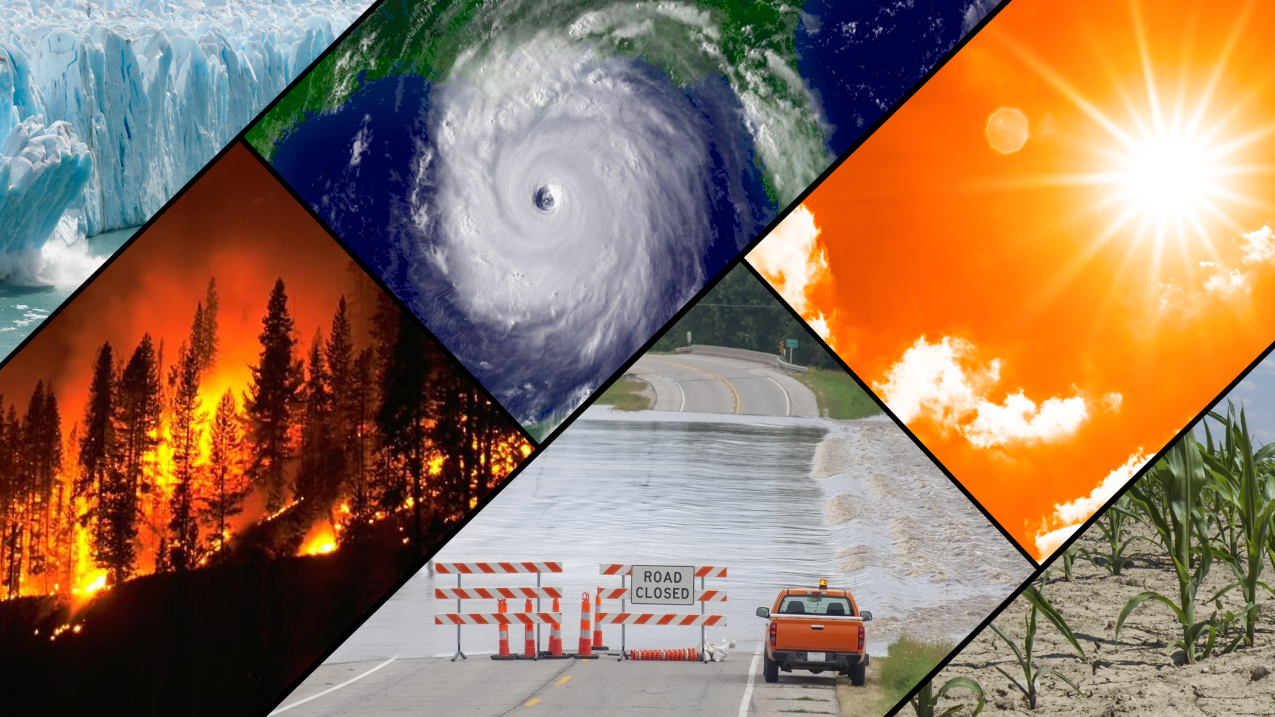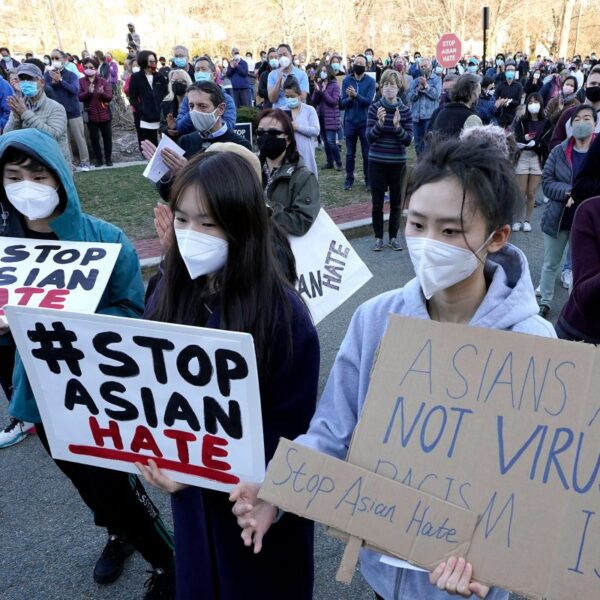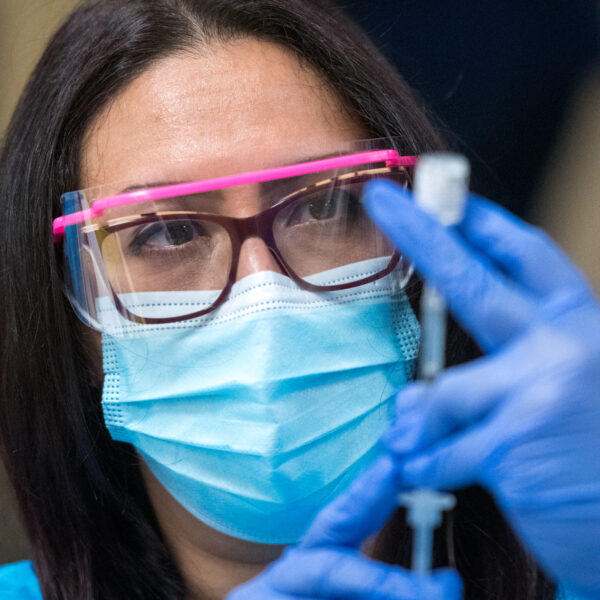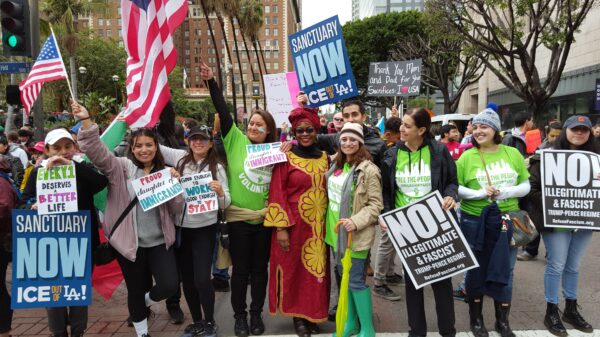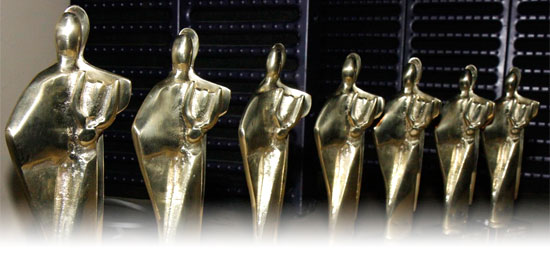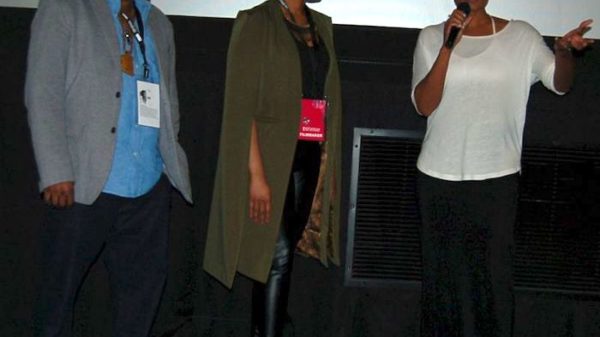In a thought-provoking event meticulously organized by Ethnic Media Services (EMS), a diverse panel of experts gathered to illuminate the multifaceted and transformative effects of climate change on our society. This gathering transcended the conventional narrative of climate change merely causing temperature fluctuations and altering weather patterns. Instead, it delved into how climate change is fundamentally reshaping our lives in profound and far-reaching ways.
Climate Change’s Wider Implications: Climate change, once confined to the realm of scientific discourse, has forcefully thrust itself into the global spotlight through a surge in extreme weather events across the globe. It is now evident that climate change extends far beyond the boundaries of environmental concerns; it is a societal issue that permeates every facet of our existence, influencing how we live, work, and even our spiritual convictions. The EMS briefing sought to uncover the deep-seated and enduring consequences of climate change, delving into its societal toll, the responses it evokes from the public, and its profound impact on our spiritual and emotional well-being.
Expert Panel Commences Discussion: The event was inaugurated by a panel of distinguished experts, led by Hannah Hess, Associate Director of the Climate Impact Lab. This non-profit research collaboration, established in 2016, is dedicated to raising awareness about how climate change intricately interlaces with people’s lives. Their mission extends beyond recognizing climate change as an environmental concern; they aspire to illuminate its profound societal implications.
Megan Mullin’s Economic Insights: Megan Mullin, Faculty Director of the UCLA Luskin Center for Innovation, brought economic perspectives to the fore. She underscored the formidable challenge of striking a balance between emissions reduction and other societal imperatives, such as ensuring affordable housing and education.
Jon Christensen on Uneven Impacts: Jon Christensen, an Adjunct Assistant Professor at the UCLA Institute of the Environment and Sustainability, delved into the uneven distribution of climate change’s impacts. He highlighted how climate change has the potential to exacerbate pre-existing inequalities. Christensen emphasized the critical need for localized studies to comprehend the nuanced repercussions of climate change.
Anais Reyes on Health Implications: Anais Reyes, Senior Exhibitions Associate of Curation at the Climate Museum, offered insights into the health-related implications of climate change. Using Orlando as a case study, she illustrated the mounting health risks tied to escalating temperatures.
Key Insights Unveiled:
The Social Cost of Carbon (SCC): The SCC emerged as a vital tool for evaluating the costs of impending climate change versus the expenses associated with new policies. It quantifies the cumulative societal damages stemming from each additional ton of carbon dioxide emitted, offering policymakers valuable insights to make informed decisions.
Inequitable Impact Distribution: Climate change’s harm is far from uniform, necessitating an in-depth analysis of localized impacts. The Climate Impact Lab’s division of the world into 24,000 regions aids in scrutinizing historical data and projecting the ramifications of climate change on diverse outcomes.
Human Climate Horizons: The lab introduced “Human Climate Horizons,” a novel platform developed in collaboration with the UN Development Program. This platform aims to make climate data more accessible, particularly in regions with limited access to such information. It assists users in comprehending the physical consequences of climate change and how these effects might evolve across generations.
Health Implications: Rising temperatures, exemplified by the Orlando case, lead to heightened health risks, including increased mortality rates due to heat-related illnesses. This vividly underscores climate change’s profound influence on public health.
The EMS briefing illuminated the intricate ways in which climate change is metamorphosing society. From economic considerations to health impacts, it accentuated the urgency of addressing climate change as an integral facet of our daily lives. Beyond an environmental concern, it demands proactive policies and innovative solutions to mitigate its pervasive consequences. Events like these serve as pivotal forums for dialogue, raising awareness, and catalyzing action as we grapple with the ramifications of climate change.
Hannah Hess, Advocate for Climate Impact Lab:
Hannah Hess, representing the Climate Impact Lab, embarked on her presentation by introducing this nonprofit research collaboration established in 2016. Recognizing that many in the audience might be unfamiliar with their work, she elucidated the lab’s core objectives.
Raising Awareness: Hess underscored that the primary focus of the Climate Impact Lab is to raise awareness of how climate change directly impacts people’s lives. Beyond regarding climate change solely as an environmental concern, the lab aspires to illuminate its profound societal implications.
Policy Design and Resilience: Hess expounded upon the lab’s mission, which extends to translating research findings into practical tools for policymakers. These tools aim to facilitate the formulation of policies directed towards reducing greenhouse gas emissions and enhancing society’s resilience against inevitable climate impacts.
The Cost of Emission Reduction: Hannah Hess brought to light a fundamental challenge— the cost associated with emission reduction. She referred to a chart depicting various potential climate futures contingent on different emissions trajectories.
Social Cost of Carbon (SCC): Hess introduced the concept of the Social Cost of Carbon (SCC) as a pivotal approach to tackle this challenge. SCC quantifies the total societal damages incurred by emitting one additional ton of carbon dioxide. She provided a straightforward example involving car tailpipe emissions to illustrate how SCC can be harnessed to evaluate the benefits of new policies against their costs.
Interdisciplinary Team: Hess showcased the diverse composition of the Climate Impact Lab’s team, comprising economists, climate scientists, and data engineers. They amalgamate extensive climate datasets with econometric tools to accurately quantify climate change impacts.
Local-Level Impact Assessment: Hannah underscored the significance of studying climate change impacts at the local level. The lab segments the world into roughly 24,000 regions, amassing historical data on pertinent outcomes and forecasting future effects based on variables such as weather, population, and income projections.
Human Climate Horizons: Hess unveiled “Human Climate Horizons,” a novel platform developed in collaboration with the UN Development Program. This platform aims to make climate data more accessible, particularly in regions with limited access to such information. It assists users in comprehending the physical consequences of climate change and how these effects might evolve across generations.
Case Study: Orlando: Utilizing Orlando as an exemplar, Hess illustrated the ramifications of escalating temperatures on public health. She revealed that surging heat levels in the city would result in a significant upswing in mortality rates, surpassing the current mortality rate stemming from car accidents.
Hannah Hess provided valuable insights into the Climate Impact Lab’s mission and its endeavors to quantify the societal costs of climate change. Her presentation underscored the imperative of comprehending these costs and impacts at both a global and local level, emphasizing the urgency of addressing climate change comprehensively and with informed precision.
Jon Christensen, Advocate for Environmental Narratives:
Jon Christensen, an Adjunct Assistant Professor at the Institute of the Environment and Sustainability, Laboratory for Environmental Narrative Strategies (LENS), UCLA, steered the discussion toward the significance of narratives and the narratives that people associate with climate change. Christensen underscored the pivotal role of understanding the stories and narratives surrounding climate change.
Historical Overview of Disaster Narratives: Christensen provided a historical lens through which natural disasters have been interpreted over time. He cited examples such as the Black Death and the great Lisbon earthquake, elucidating how these events shifted from being perceived as divine punishments to natural disasters, with victims considered deserving of aid.
Creation of Doubt and Denial: Christensen brought attention to the deliberate cultivation of doubt and denial concerning climate change. He explained how certain entities, including fossil fuel companies, employed public relations campaigns to sow uncertainty regarding the reality of climate change, drawing parallels with similar tactics used by the tobacco industry.
The Polarizing Nature of Climate Change: Jon Christensen delved into the polarizing nature of climate change, particularly in the realm of American politics. He noted that individuals’ interpretations of climate change are not solely shaped by scientific facts but are profoundly influenced by frames, narratives, values, and political affiliations.
Climate Change as a Resource for Thinking: Christensen proposed viewing climate change not merely as a problem necessitating solutions but as a resource for critical thinking and storytelling. He posited that climate change could serve as a connecting thread that weaves various stories, helping us comprehend a diverse array of problems and opportunities.
The California Way: Jon Christensen cited former California Governor Jerry Brown as a prime example of effectively utilizing climate change as a resource for storytelling. Brown’s approach involved highlighting climate-related issues that people could tangibly experience in their daily lives, ultimately fostering action and resulting in substantial water conservation in the state.
In conclusion, Jon Christensen encouraged the audience to recognize the power of storytelling and the myriad narratives encircling climate change. He underscored the significance of understanding these narratives within different cultural contexts and languages, ultimately acknowledging the potential for storytelling to engender transformative change in addressing the challenges posed by climate change.
Megan Mullin, Advocate for Equitable Climate Policies:
Megan Mullin, the Faculty Director of the UCLA Luskin Center for Innovation and a professor of public policy at UCLA, shed light on the center’s commitment to conducting actionable research, particularly in the realm of equitable policies for addressing the effects of climate change.
Partisan Division on Climate Change: Megan Mullin emphasized that the most defining characteristic of climate change politics, not only in the United States but increasingly on a global scale, is division. She underscored that climate change stands as the most polarizing issue, creating a deeper chasm between Democrats and Republicans than any other topic. While Democrats overwhelmingly accept human-caused climate change and are growing increasingly concerned, Republicans largely remain unconcerned.
Changing Tide for Climate Action: Despite this profound partisan divide, Megan Mullin highlighted three pivotal opportunities for advancing climate action:
Growing Cohesiveness Among Democrats: Democrats have witnessed a growing unity in their concern about climate change, elevating it to a paramount party priority. This cohesiveness has broadened the scope of climate action during Democratic administrations, resulting in substantial investments in climate mitigation.
Clean Energy Expansion in Republican-led States: Interestingly, clean energy expansion has found fertile ground in traditionally Republican-led states. The geographical suitability for wind and solar energy production has driven significant investments in clean energy, even within states that have traditionally been staunch supporters of fossil fuels.
Visible Climate Impacts: As climate impacts become increasingly conspicuous, it is observed that Republicans are more vulnerable to floods and fires than Democrats. This heightened risk may potentially reduce resistance from Republicans concerning investments in climate resilience and adaptation.
Megan Mullin underscored that while the partisan divide on climate change remains substantial and persistent, there are glimmers of hope indicating that progress in climate action is attainable in the United States.
Q&A Session Insights: During the Q&A session, she acknowledged that climate change has influenced and deepened political polarization, especially by framing it as an issue of identity and immediate costs. Additionally, the emergence of climate change on the political agenda has contributed to divisions on environmental issues that were historically bipartisan concerns.
Anais Reyes, Advocate for Climate Engagement through Art:
Anais Reyes, Senior Exhibitions Associate of Curation at the Climate Museum, represented the first museum in the United States dedicated to climate change and climate action.
Mission of the Climate Museum: She elucidated the museum’s mission, which revolves around inspiring action on the climate crisis through exhibitions and cultural programs. These initiatives aim to deepen understanding, build connections, and advance just solutions. The museum does not solely focus on climate science but also encompasses the arts, humanities, and social impacts, with the overarching goal of engaging a broader audience in the crucial conversation about climate change.
Pop-Up Exhibition “Someday All This”: Anais delved into a recent pop-up exhibition held by the museum, which unfolded between October 2022 and April 2023 in Manhattan. The exhibition comprised three distinct parts:
Postcard Mural Artwork: The first segment featured an artwork titled “Someday All This.” It consisted of vintage postcards woven together to form a landscape scene, narrating a fictional story about climate change in the future. Each postcard encapsulated a snapshot of the overarching narrative, permitting visitors to explore diverse aspects of the artwork.
Challenging Misconceptions: The second segment was dedicated to scrutinizing how the public comprehends and misunderstands climate change. Anais referenced research from Yale and George Mason Universities that unveiled a bipartisan supermajority in favor of climate policy, despite the misconception that insufficient support exists. The exhibit sought to debunk these misunderstandings.
Taking Action: The third segment urged visitors to take action. An interactive sticker wall showcased various stickers, each denoting actions related to climate change, such as endorsing climate-friendly policies or initiating conversations on the issue. Visitors could select stickers that resonated with them and place them on the wall. The primary objective was to underscore collective and civic actions over individual efforts to instigate systemic change.
Busting the Myth: Anais emphasized the paramount importance of dispelling the myth that there is insufficient support for climate action. She noted that although 66% of Americans express concern about climate change, merely 5% engage in discussions about it, engendering a “spiral of silence.” By disseminating accurate information regarding the true level of support, the museum aimed to galvanize people into action and encourage conversations about climate change.
Community Engagement: The interactive elements within the exhibition, including the sticker wall, resonated with a diverse spectrum of visitors, ranging from school groups to corporate teams. This interactive approach fostered a sense of community and shared responsibility, allowing people to witness others’ commitment to addressing climate change.
Upcoming Exhibition: Anais revealed that the Climate Museum is gearing up to launch its second pop-up exhibition in Manhattan, centering on the intersections of climate change and social inequality. The museum aspires to continue expanding its efforts and ultimately establish a year-round space, extending its reach to an even wider audience.
In summation, the Climate Museum’s innovative approach amalgamates art, education, and community engagement to catalyze action on climate change and debunk myths regarding public support for climate action.
#ClimateChange #SocietalImpact #ExtremeWeather #Environment #GreenhouseGas #Resilience #SCC #LocalImpact #PublicHealth #ClimateImpactLab #Narratives #Polarization #CleanEnergy #ClimateResilience #ClimateAction #CommunityEngagement #ClimateEducation #PublicSupport

